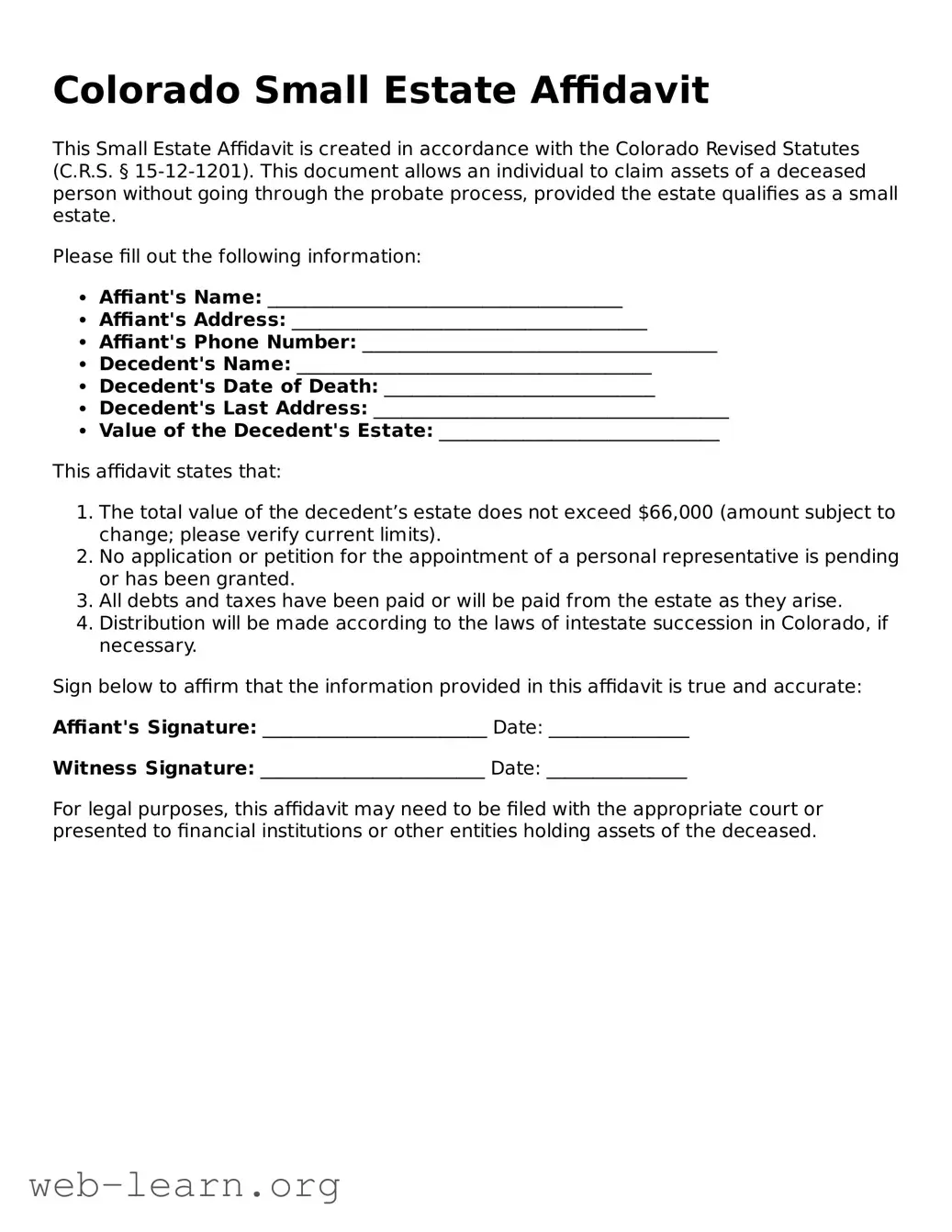Colorado Small Estate Affidavit
This Small Estate Affidavit is created in accordance with the Colorado Revised Statutes (C.R.S. § 15-12-1201). This document allows an individual to claim assets of a deceased person without going through the probate process, provided the estate qualifies as a small estate.
Please fill out the following information:
- Affiant's Name: ______________________________________
- Affiant's Address: ______________________________________
- Affiant's Phone Number: ______________________________________
- Decedent's Name: ______________________________________
- Decedent's Date of Death: _____________________________
- Decedent's Last Address: ______________________________________
- Value of the Decedent's Estate: ______________________________
This affidavit states that:
- The total value of the decedent’s estate does not exceed $66,000 (amount subject to change; please verify current limits).
- No application or petition for the appointment of a personal representative is pending or has been granted.
- All debts and taxes have been paid or will be paid from the estate as they arise.
- Distribution will be made according to the laws of intestate succession in Colorado, if necessary.
Sign below to affirm that the information provided in this affidavit is true and accurate:
Affiant's Signature: ________________________ Date: _______________
Witness Signature: ________________________ Date: _______________
For legal purposes, this affidavit may need to be filed with the appropriate court or presented to financial institutions or other entities holding assets of the deceased.
